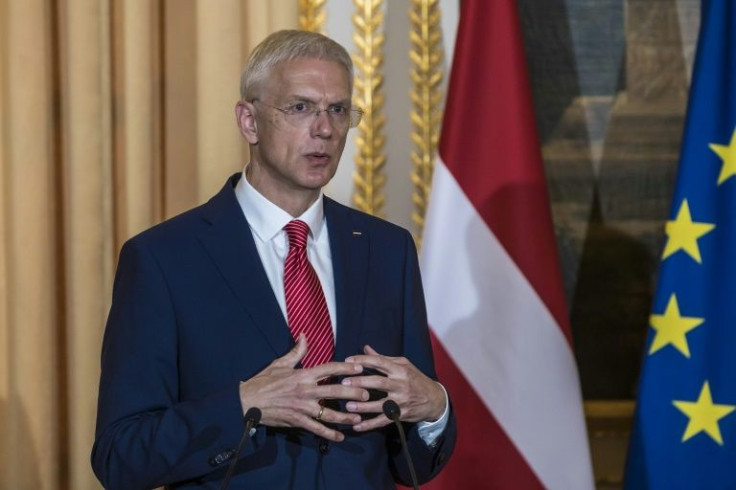Russia Seeking To Destabilise And Split Europe: Latvian PM
Latvia's prime minister on Wednesday accused Russia of seeking to destabilise and split Europe with a series of actions including its latest build-up of troops on the border with Ukraine.
In an interview with Agence France-Presse, Prime Minister Krisjanis Karins described the build-up as "disturbing" and said it was the latest in a series of interconnected actions by the Kremlin including limits on gas supply, its buttressing of the regime in Belarus and disinformation.
Speaking after Latvia hosted NATO foreign ministers for a meeting in Riga, he called for NATO to boost its presence on the eastern flank of the alliance in the face of the Russian behaviour.
The build-up of troops on the border with Ukraine's pro-Moscow separatist regions prompted a warning from Washington that Russia was planning aggression in its neighbour and renewed fears of the flare-up of the conflict that began in 2014.
"This is all part of one interconnected set of events which seems to be on some level to destabilise or to create disunity in Europe," Karins said.
The "additional troops near the Ukrainian border is disturbing at least, because it's not clear what the Russian intent is," said Karins, whose country shares a border with Russia and like its two fellow Baltic states Estonia and Lithuania is a member of both the EU and NATO.
On the strategy of Russian President Vladimir Putin, he said: "I believe also that Putin's doctrine of somehow recreating a Russian-speaking empire, somewhat similar to the Soviet Union or other certainly seems high on the agenda."

He said that the West should step up all kinds of assistance to Ukraine -- including military training and armaments -- as this would reduce rather than increase the risk of conflict.
"We should not be concerned about helping Ukraine because if there is a clear signal that we in the West would assist Ukraine more that could stop a further escalation," he said.
"If Russia were to get the idea that there would be no resistance that would be a bigger risk of actual heightened military conflict," he added.
He said that when Europe talks to Russia it should negotiate from a "position of strength" given that the European economy is far bigger than the Russian economy.
"Just as Europe is on some sense dependent on Russian fossil fuel exports, Russia is dependent on Europe cash imports. We are not at all a weak (European) Union," he said.
He argued that in the face of the Russian efforts to create disunity in Europe both NATO and the European Union had "pulled closely together" again and the alliance's meeting in Riga had showed this.
"NATO as a military alliance has of course a broad range of options," in case of Russian aggression, pointing to "heightened and targeted economic sanctions, probably very broad" that could be imposed.
He also reaffirmed the request from Baltic states for a stepped up NATO presence on their borders.
"At this point it would be very proportionate and understandable if NATO increased its footprint, also in the Baltics. It's not only a question of numbers but of capabilities, technologies and abilities."
© Copyright AFP 2024. All rights reserved.











